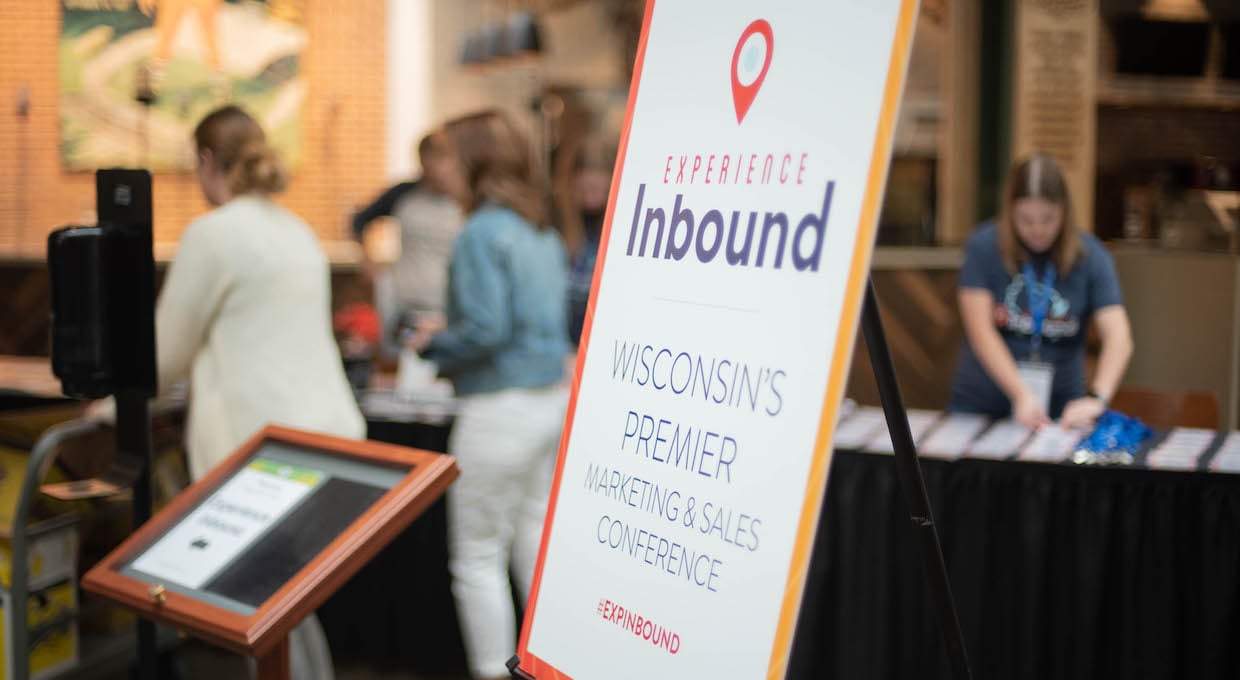Ready or Not: AI Agents Are Reshaping How Industrial Brands Market and Sell
Written by
Do you feel it? B2B marketing is undergoing a fundamental transformation.
Generative AI was just the beginning. Now we’re seeing the emergence of AI agents: digital teammates that perceive, decide, and act without constant human oversight. They operate beyond the scope of chatbots or analytics tools. This technology represents a genuine evolution in how marketing gets done. AI agents create new possibilities for amplifying and scaling human creativity and strategic thinking in ways we’re only starting to understand.
And it’s a disruption that will affect not just marketing, but every industry. Need proof?
Look no further than Google: Type “What are AI agents?” into the search bar (yes, people still do that). Firstly you’ll notice that AI has answered you itself (so meta. No, no, not that Meta).

Next you’ll see the hugest of huge companies are all over this topic — Amazon Web Services, Google, Microsoft, IBM, and more:

I’ll be honest: even after watching (and re-watching) Agent.ai’s #NYtechweek workshop, recording a podcast episode on the topic, and playing with agent-builders myself, I still can’t pin down a perfect, one-sentence definition of what an AI agent is. And maybe that’s the point — this space is evolving so fast, the definitions can barely keep up. But what I do know is this: as someone who helps industrial marketers navigate complex change, I’ve seen how quickly leaders are being asked to make sense of this new wave of AI.
That’s why we put together this “study guide” — to help fellow marketers and sales pros understand the forces at play, anticipate the questions your executive team might throw your way, and start making more confident, informed decisions about how to work *with* AI agents, not just around them.
We recently had Sam Mallikarjunan of Agent.ai on The ChangeOver podcast to unpack the topic ahead of his appearance at Experience Inbound. It’s a fascinating conversation about the wide-ranging applications of AI agents, from marketing to education and beyond. Listen or watch the full episode now:
Ep 18: AI Agents, Business Automation, and the Future of Work
What Are AI Agents?
At their core, AI agents are artificial intelligence systems that operate independently and continuously learn from data and feedback. They can automate workflows by integrating with various softwares/hardwares via APIs (Application Programming Interfaces).
For example, an AI agent can:
- schedule and respond to social posts,
- monitor and surface hot leads through your CRM, or
- pull product specifications, pricing, and past customer data to generate a tailored sales proposal.
Most importantly, AI agents can enhance decision-making, allowing human talent to focus on what AI can’t: personalized strategies and relationships.
Unlike traditional automation or even basic AI, AI agents can adjust to changes on their own and handle several tasks across different tools and systems. The transition from tools to autonomous coworkers is already delivering measurable ROI across sectors.
For example, one company uses AI agents for predictive maintenance, reducing manufacturing downtime by 30%. Another’s customer service AI agent handles 700+ distinct tasks and resolves 95% of customer queries without human involvement.
What Makes AI Agents Unique?
Traditional marketing automation operates on predefined rules. Think email workflows with “if/then” triggers, or chatbots that answer common questions on your website.
AI agents, on the other hand, make real-time, context-aware decisions and interact with a wide range of unstructured data like text, voice, or images.
For example:
- Autonomous cars must react to ever-changing traffic conditions and surrounding vehicles.
- In the medical field, AI agents can analyze medical journals and forums and combine the data with images and transcripts from patient conversations to help diagnose medical conditions.
- Manufacturers can use AI agents to automatically trigger a purchase order when a component’s inventory drops below a certain threshold.
So what might key differentiators of AI agents look like in the B2B sales and marketing world?
Tool Integration
Through APIs, agents can orchestrate workflows across CRMs, ERPs, email platforms, IoT sensors, websites, and more. For example, you could auto-generate keyword-optimized content drafts to improve SEO using data from your marketing platform and third-party SEO tools.
Your sales team can get help identifying high-value prospects who are visiting your website, gathering research from public sources, and drafting tailored outreach sequences based on a prospect’s situation (industry, pain points, and engagement history).
The key to all of this agency is unified, healthy data. Without accurate and up to date information, even agents can’t work well.
Real-time Action
Agents don’t wait for instructions; they detect problems and opportunities in real time. AI agents can trigger alerts, adjust ad bids, or send a hyper-personalized email based on a contact’s behavioral data. An agent can adjust pricing using a competitor’s API feeds, or monitor a government API and send an alert to auto-update compliance due to a regulatory change.
Let’s follow an example.
Example: AI Agent-Driven Quote Optimization Using Real-Time Raw Material Prices
Let’s say you’re a manufacturer quoting a large run of steel-based components for a prospect. You have an open opportunity in your CRM, and your AI agent is connected to a real-time steel pricing API from your preferred suppliers.
The agent detects that steel prices just dropped by $45/ton — enough to meaningfully affect your margins on the open RFQ. Here’s what happens next:
- The agent auto-updates the cost model behind the quote in your CPQ or ERP system
- It calculates a revised total that gives the customer a better price while preserving your margin
- The agent then prompts the sales rep via CRM or Slack, flagging the pricing drop and suggesting they send a “buy now” message
- The system even drafts a quick message:
“Hi [Prospect], a heads-up — our steel costs dropped today, and I can lock in a lower rate for your project if we move forward soon. Want me to resend your quote with updated pricing?”
The result? You get ahead of procurement delays and price volatility — and give your sales team a perfectly timed reason to re-engage and close faster.
Proactive Behavior
With access to live data streams, AI agents evolve their strategies and outputs over time. Want a chatbot to perform AI-driven lead qualification and book demos automatically, 24/7? An AI agent can analyze your constantly changing calendar to do that. It can also scrape the internet for data on a prospect and write your call script before you even check your calendar the next morning.
Collaboration, Not Replacement
Despite their capabilities, AI agents aren’t here to replace humans. They’re here to help us. They take on the repetitive, data-heavy tasks that bog down marketers and sales teams, freeing them to focus on creativity, strategy, and human connections.
It’s not human vs. machine. It’s human with machine.
The question isn’t whether your business will use AI agents. It’s whether you’ll lead or follow. AI agents are already reshaping how industrial brands market, sell, and operate. Whether you’re streamlining content creation, optimizing your supply chain, or improving customer service, AI agents offer a path to faster, smarter, and more adaptive operations.
Take a deeper dive into what AI agents can do and how their helping teams free up time (and their brains) to focus on developing strategies and allowing their creative juices to flow. Watch The ChangeOver Podcast episode featuring guest, Sam Mallikarjunan from Agent.ai
Then subscribe to make sure you don't miss any of the helpful conversations about industrial marketing and sales strategies and tactics that get results.
Subscribe To Our Blog
Information. Insights. Ideas. Get notified every time a new Weidert Group blog article is published – subscribe now!
You May Also Like...

Search Engine Optimization
Zero-Click Marketing Raises the Bar for Good Marketing

Weidert Group News & Events
Experience Inbound 2026 Opens Registration for Wisconsin’s Premier Marketing & Sales Conference

Search Engine Optimization
Zero-Click Marketing: What B2B Marketers Must Rethink Now
Accelerate Your Growth with
Weidert Group
If you’re ready to explore a partnership, request a personalized consultation with our team.

